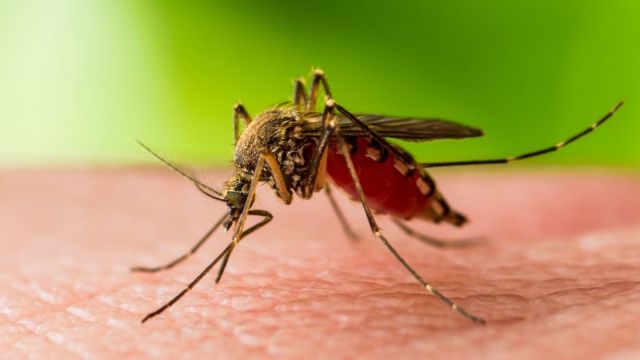Mosquito-Borne West Nile Virus has been found in people in seven states! Know the signs
More than half of those with a West Nile diagnosis now have a severe illness due to the infection.
Thus far, the West Nile Virus has caused illness in seven states, with some instances developing into serious conditions.
The disease has been identified in nine individuals in Arizona, Arkansas, Kansas, Maryland, Michigan, Mississippi, and Tennessee; however, the Centers for Disease Control claims that the virus has been discovered in non-human animals (such as mosquitoes and birds) in at least eighteen states.
According to the CDC, “People become infected with the virus when mosquitoes feed on infected birds and then bite people.” This is concerning evidence of the virus’s possible spread.
According to the CDC, five of the nine individuals who have received a West Nile diagnosis have had their condition evolve to “neuroinvasive disease,” which entails the development of conditions like meningitis or encephalitis.
While the majority of West Nile virus infections may not result in illness, individuals over 60 or those with specific medical conditions (such as cancer, diabetes, or hypertension) are at a higher risk of developing severe illness, according to the CDC.
A high fever, headache, stiff neck, disorientation, coma, tremors, convulsions, muscle weakness, loss of vision, numbness, and paralysis are some of these symptoms.
According to NBC News, a CDC press officer named Kate Fowlie stated in a statement, “We are seeing West Nile virus (WNV) activity a little earlier this year so it’s really important that everyone takes steps to protect themselves and their families from mosquito bites.”
“We don’t exactly know how this year will compare to others because WNV is typically unpredictable and varies from year to year.”
The CDC suggests prevention over treatment as there is neither a vaccine nor a cure for West Nile.
The CDC advises wearing long sleeves and pants in addition to using an insect repellent containing DEET, picaridin oil, lemon eucalyptus, or para-menthane-diol, the latter two of which are not advised for use on children younger than three.
In addition, the CDC issued a warning in June on a higher risk of dengue fever in the United States, so mosquito-borne illnesses are not limited to West Nile.
The Environmental Protection Agency linked climate change to the increase in mosquito populations in a previous report on West Nile.
According to research, “warmer temperatures linked to climate change can accelerate mosquito development, biting rates, and the disease’s incubation within a mosquito.”

